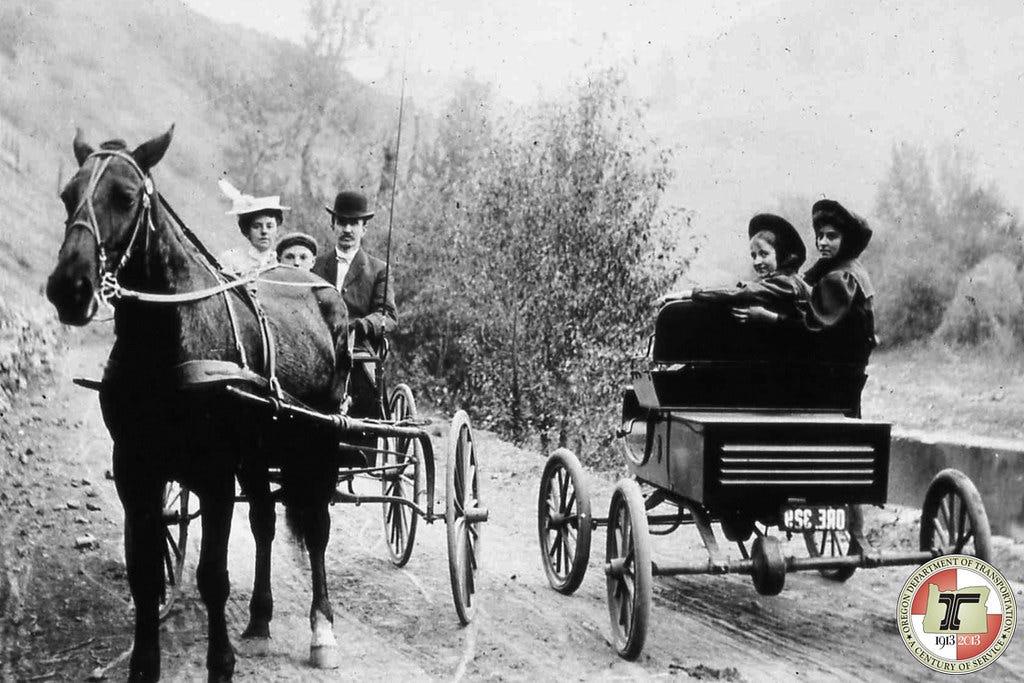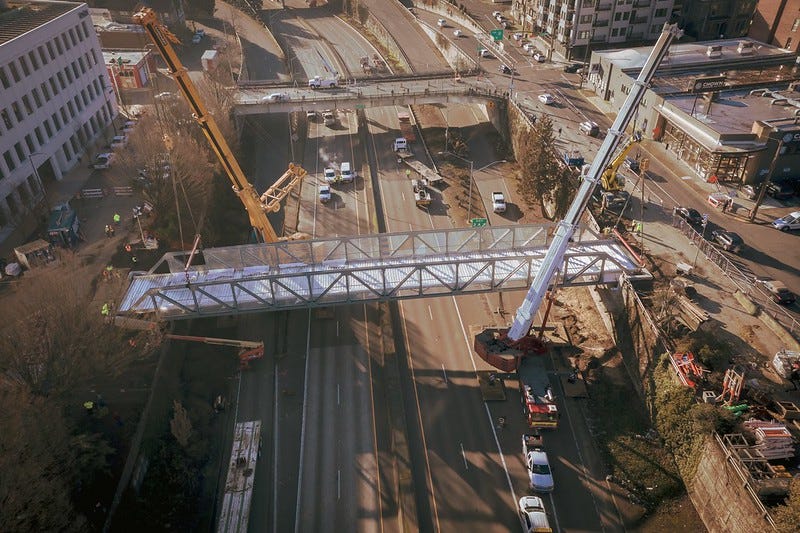Oregon and its progressivism is what we need
Oregon is a magical place but also a place with real challenges. The way we grow our strengths and address these challenges is by facing them head-on with new energy and ideas.
Editor’s Note: Do your part to Sustain the Way!
21 Oregonians have gotten us to $1,045 - keep the momentum going so we can hire a part time editor.
Will you send $20?
Donate here or subscribe below to create a part-time editor position.
Jared Wiener works at Prosper Portland and is the City’s primary point of contact to the technology industry. He’s been a proud Oregonian for the past decade.
We have real problems in our communities. They need to be addressed to create more opportunities for more people and a stronger society for all of us. This is true regardless of the geography you examine. The Buckman neighborhood (where I live) in Portland has real problems, the City of Portland does, and so does Oregon, America, and our planet. The way we solve them is through progressive approaches.
Way back in my final semester as an undergraduate at North Carolina State University (Go Pack!), I decided I needed an internship and I wanted to explore politics to solidify my personal beliefs and help make my communities better. About 50 phone calls later, I landed an unpaid internship in a local Congressperson’s fundraising office. This experience ultimately led to a job working on political campaigns a year and a half later. While in that role, I discovered Representative Paul Luebke. More specifically, I discovered his book, Tar Heel Politics.
In the book, Rep. Luebke argues the real political battle is between those that support growth and progress (progressives), and those that value existing traditions and are threatened by growth and social change (traditionalists). The first edition of the book was written more than 30 years ago, a continent away, and yet it resonates with what I see in our communities across Oregon today.
There is a mix of both mindsets within Oregon and they are prevalent in some of our most pressing policy discussions. Much of Oregon’s history has been defined by pushing forward and developing new solutions to the problems we face. Progressive solutions are what many of my fellow authors in this newsletter are calling for - Jessica Gomez calls for it in applying the assisted living model to address systemic homelessness, Kevin Frazier calls for it with The Cascadia Bullet Train, and Glandora Claybrooks calls for it in For healthcare: Everybody in and nobody out. I’m on board not only with progressive policies in these three areas but with the mindset in general.
The thing many traditionalists don’t adequately account for is that change is inevitable. Clinging to bygone times or solutions that worked in previous eras oftentimes does not do justice to what is needed today. We need communities that are more welcoming of more people. We need solutions that offer basic necessities and opportunities of progress and success to all who call Oregon home and who will call it home in the near future. Our challenges are simply too great and change is occurring too quickly to rely on solutions developed for earlier times.

This is not to say that traditionalism is wrong, it’s just not well-suited to problem solving. Progressivism could benefit from considering the traditionalist’s focus on incrementalism, on making sure folks feel included and comfortable in any vision of the future, and on acknowledging that there are manifold lessons to learn from the past. As a self-described progressive, I certainly benefit from folks who pump the brakes and help me really question if an easier to implement solution may be better in the long run. Even if I ultimately move forward as intended, slowing down to assess the decision has always made it better. Thus, there is a role for traditionalism. The key, though, is not allowing our regard for the past to blind us for considering options for our future.
We need Oregon to be a place a generation from now where we are even more proud to call it home than we are today - a place with cleaner air and water, first-rate health care, quality jobs, world-leading schools, and a larger, more diverse, and welcoming population. Some of these topics will require significant experimentation and disruption to the status quo. For example, health care will require changes to the insurance landscape, and school reform will dramatically impact teacher unions and may necessitate experimentation through more charter schools. In many cases more resources are needed, but when Republican politicians say just throwing money at the problems we face won’t solve them, they’re right. Oftentimes, what we first need to do is change the paradigm.
Oregon’s history on many of these fronts has blemishes—most notably on racial equity and education rankings statewide. But here’s the thing, every community has problems. We must acknowledge ours and work to address them. Nationally, the work to create a more perfect Union is not complete. Turning more of the American Dream into reality is dependent on more of us continuing to push forward.
Regardless of political affiliation, it is about progressing. When we look for folks to work with whether it be in business, within our community and across the aisle in Salem, we should look for progressives—doing so promises better days ahead.
**************************************
Keep the conversation going:
Facebook (facebook.com/oregonway)
Twitter (@the_oregon_way)
Connect with Jared:
@JaredCWiener




